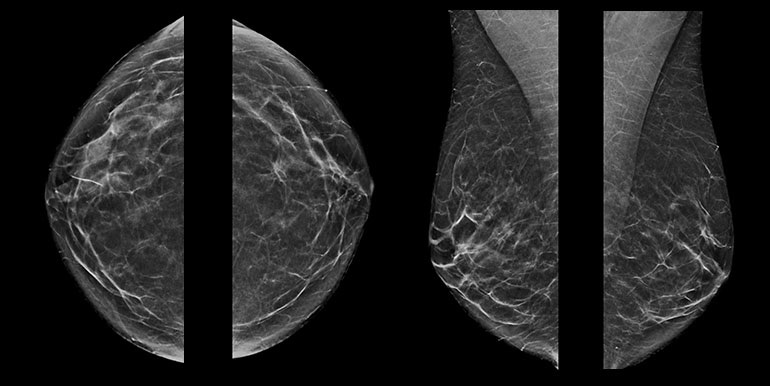Metastatic breast cancer uses immune system to spread
Inflammatory breast cancer (IBC) is the most lethal form of breast cancer. It spreads easily through the lymphatic and blood vessels, forming metastasis which can lead to multi-organ failure. New research published in Cell Communication and Signaling demonstrates how IBC cells use IL-8, secreted as part of the anti-inflammatory response by a specific set of white blood cells (monocytes), to increase fibronectin expression [1].
Image credit: shutterstock.com
Fibronectin is a cell-adhesion molecule which is usually involved in wound healing and cell migration during embryogenesis. Over-expression of this molecule is thought to allow cancer to metastasise. Prof Mona Mohamed from Cairo University used a cytokine antibody array to identify which immune-regulating molecules (cytokines, chemokines, and growth factors) were secreted by monocytes and found that, while monocytes secreted a small amount each of a wide range of molecules, there was up to 10 times more IL-8 and MCP-1.
The cocktail of immune-regulating molecules from the monocytes was able to increase the amount of fibronectin produced in IBC cells and in 3D culture produced branch-like structures typical of fibronectin over-expression. IL-8 on its own also turned up fibronectin expression in IBC cells. Prof Mohamed explained, "Adding IL-8 on its own to IBC cells caused an increase in the signaling proteins PI3K and AKT and it is this pathway which is responsible for fibronectin production."
Read the whole article at ecancer.org
Reference
- Mohamed, M. M. (2012). Monocytes conditioned media stimulate fibronectin expression and spreading of inflammatory breast cancer cells in three-dimensional culture: A mechanism mediated by IL-8 signaling pathway Cell Communication and Signalling DOI: doi:10.1186/1478-811X-10-3
klíčová slova: breast cancer, metastases, immune system, fibronectin





